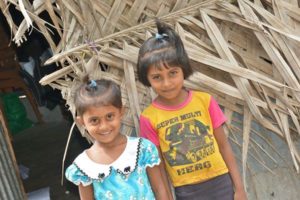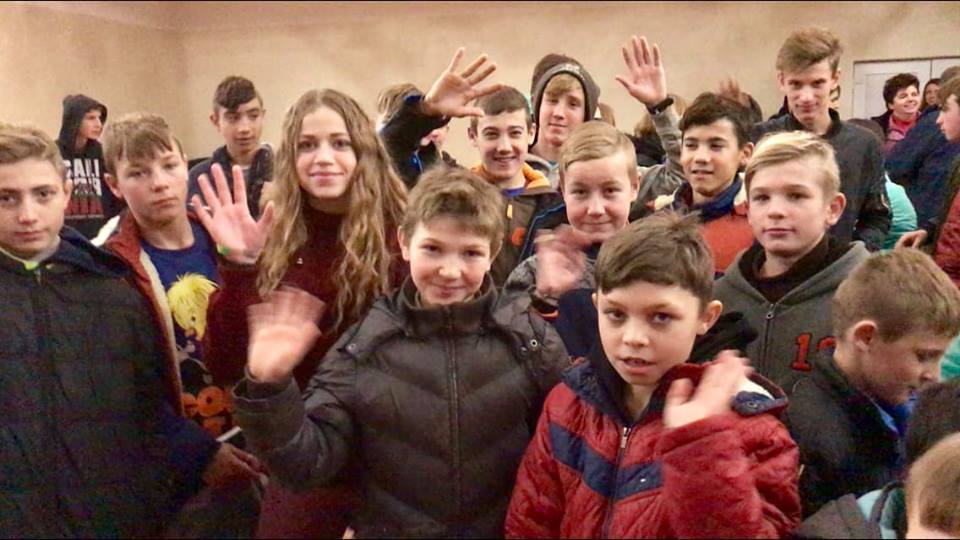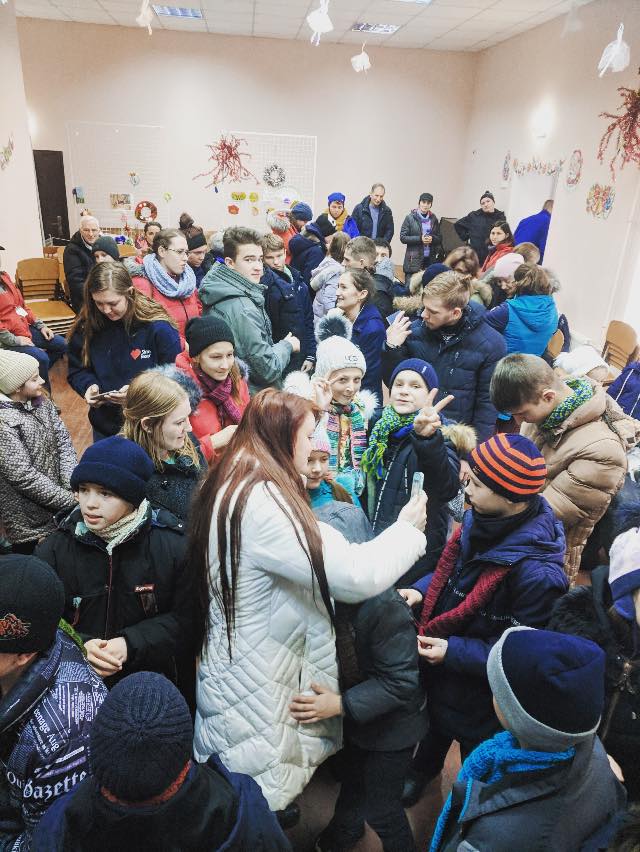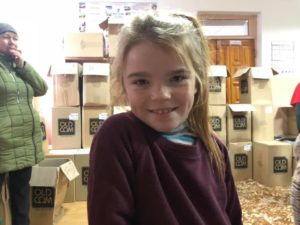
Two young girls and the transformational power of CERI’s Food Security Program
By Bonita Nirmala Samuel and Leonard Favela
Featured in the 2016 annual BCFS together magazine
In 2009, the Batticaloa District of Sri Lanka finally witnessed an end to the devastating 30-year civil war that decimated the region and its people. Batticaloa is the fourth most impoverished district in Sri Lanka, and home to the CERI office and the epicenter of CERI programs in the area. Nearly 20 percent of its inhabitants live at or below the poverty line, earning the equivalent of $25.50 per month.
According to UNICEF, nearly one of every five children in Sri Lanka is born with low birth weight and approximately 29 percent of children under five years old are considered underweight. To address this epidemic, Children’s Emergency Relief International (CERI) launched the Food Security Program (FSP).
In 2016, CERI Sri Lanka implemented the Food Security Program in Parathy Kiramam, Kiran Division, one of the poorest areas in Batticaloa, and the sixth village to be touched by the program since its inception. CERI’s initial goal of serving a group of 12 to 15 children quickly changed, however, when 34 underweight children showed up to the program. Two of these young children were Kugasaruthy, age 7, and Satheeska, age 5, both of whom weighed only 27 pounds.
Although they are young, Kugasaruthy and Satheeska know firsthand the ravages of civil war, which had left their father disabled. He was attacked by an elephant while seeking shelter during a shooting. As he ran for safety, he was shot three times. Barely alive, he was rescued and taken to the hospital for emergency surgery. Unfortunately, during surgery, a medical mistake resulted in a severed nerve, rendering the young father’s left arm useless. Unable to work with the use of both hands, it was incredibly difficult to find work and provide for his family.
The girls’ mother, Jeyanthini, 27, also suffered in the aftermath of these tragedies. The couple experienced feelings of inferiority due to their extreme poverty, causing them to withdraw from the outside world. Jeyanthini prohibited her daughters from playing with the other children in the village, kept them from attending school and confined them to their small home.
In spring 2016, Jeyanthini and her family were selected to participate in CERI’s Food Security Program, an opportunity she initially rejected. However, after learning more about the services, she accepted the offer, her heart filled with the hope of helping her family.
During the 12-day program, Jeyanthini learned to cook simple, healthy meals while her children participated in activities at the Children’s Club. After living in sheltered isolation, Kugasaruthy and Satheeska made friends and learned how to play with other children. With each passing day in the program, their energy and enthusiasm increased.
Before long, Jeyanthini started to flourish as well. She began to share stories about her life during the cooking sessions, talking excitedly with the other mothers about the positive differences she witnessed in her children’s behavior as a result of their participation in the program.
“My girls are very happy to take part in the sessions,” she said. “They eat more while they are with other children than they eat at home when they’re alone. I feel an invisible love that surrounds my children, and peace and happiness cover our family daily as the girls return home after the session.”
Jeyanthini began allowing her daughters to play with the other children in the village, as well as attend school.
Participation in the program has also improved the sisters’ health. Kugasaruthy and Satheeska have both gained weight, expanded their social skills and boosted their self-esteem, and overall, enhanced their quality of life. Playing with their peers offered new experiences and opportunities for exploration, learning and development. New toys, new friends and organized games stimulated their growth and capacity, and CERI staff used game times to teach children how to play well together, model positive behavior, and show the love of God through respect for one another and good sportsmanship.
The FSP helped Kugasaruthy and Satheeska grow physically and emotionally in a very visible and profound way. Still, the girls remain underweight in comparison to their American counterparts. While the average weight of an American seven-year old is 49 pounds, Kugasaruthy is approximately 30 pounds and little Satheeska at age four weighed in after the program at 27.5 pounds. Nevertheless, the sisters are on their way to healing, inside and out.
Bonita Nirmala Samuel, the CERI Sri Lanka Interim National Program Director describes her team’s feelings about the Food Security Program implementation in Parathy Kiramam.
“We thank God for this wonderful opportunity to serve others,” she says, “and to have successfully reached these families most in need.”
Sadly, more than 53 percent of children in Sri Lanka under 5 years old are classified as underweight (calculated as weight-to-age ratio), and nearly 72 percent of local households do not have adequate sanitation or water facilities. Each year, local divisions of the Sri Lankan Ministry of Health in Batticaloa ask CERI to address the nutritional needs of area children through the Food Security Program.
The FSP addresses the acute needs in these villages for healthy food, nutrition education, intentional cooking skills, and information on the importance of proper hygiene and sanitation. The FSP offers Sri Lankan moms the tools needed to confront child malnutrition and common, yet life-threatening health conditions like diarrhea, intestinal worms and infections.
Between 2013 and 2015, CERI’s Food Security Program served more than 400 underweight children and their families. Each year the program has been in operation, a growing proportion of participating children are on track for healthy weight gain. This year, CERI Sri Lanka is serving 135 children and their families in six impoverished villages across the Batticaloa district.
Through the FSP, CERI hopes to reach even more families like Kugasaruthy’s and Satheeka’s, and one day, see Sri Lanka rise above the hunger, poverty and despair through the power of God’s love. Together, with open, loving hearts and a mission to nourish the body and the spirit, CERI staff and the Sri Lankan people transform and rebuild families and communities.





